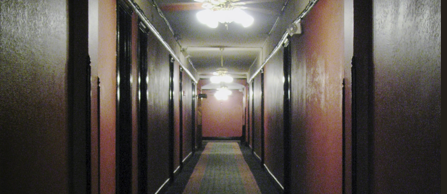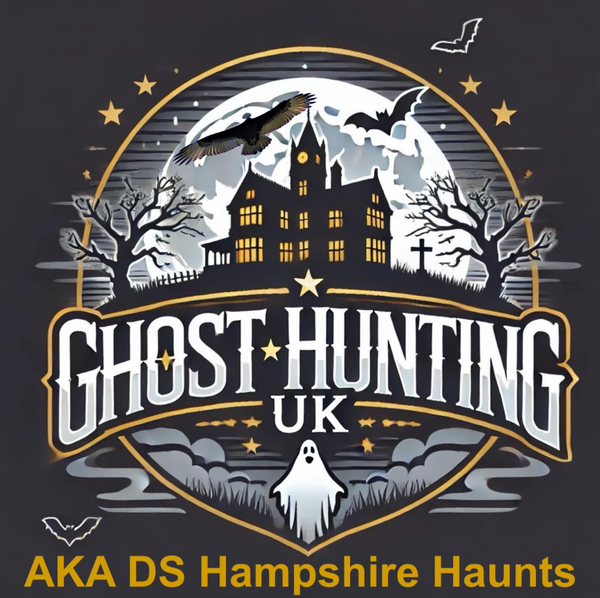
From Scepticism to Evidence: My Path as a Paranormal Investigator
Share
As I sat down to interview Dr Iain Lightfoot, a seasoned paranormal investigator, I wasn’t quite sure what to expect. Like many people, I’ve always been intrigued by the unexplained, the shadowy figures, the eerie sounds, the unsettling feeling of being watched in an empty room. What really goes on behind the scenes of a paranormal investigation? Is it more than just chasing thrills in the dark? From the moment we began talking, it became clear that Iain's approach was far more nuanced than I had anticipated. He’s not just searching for ghosts; he’s seeking answers to bigger, existential questions, all while balancing scepticism with a deep curiosity for the unknown. Over the course of our conversation, I learned how he prepares for investigations, the tools he trusts, and how intuition and respect guide his work. His stories of haunted locations and unexplained phenomena left me both fascinated and thoughtful, as I began to understand what it truly means to explore the paranormal.

1. What inspired you to become a paranormal investigator, and how did you get started in the field?
"I had been on several ghost hunts and paranormal investigations as a one-off, and I always enjoyed them. However, as I deepened my practice as a hypnotherapist, I started to realise that there’s more to the world than that which we can see. It’s that search for answers to those bigger, mysterious questions that connects many paranormal investigators. When you start looking for evidence and actually find some, it’s exhilarating. That thrill, combined with the camaraderie of like-minded people, it keeps you coming back. Over time, it becomes more than just a hobby, it’s something that gives you a personal sense of discovery and satisfaction."
2. Can you describe the most memorable or chilling investigation you’ve been a part of?
"Every location offers something unique. Your first investigation is always the most chilling because everything feels unknown and heightened; the darkness, the cold, the small taps and creaks that seem so ominous, yet the real test comes when you’re alone!!
One of the most anticipated locations I’ve investigated was the Ancient Ram Inn, known for its fierce reputation. Although I didn’t witness anything specific, the atmosphere was charged with energy, and the sense of history was heavy. Wymering Manor left a lasting impression as well, particularly in the basement areas where the air feels thick with presence. However, I’m scheduled to visit East Drive soon, and with its reputation for regular activity, that may top my list.
For me, the most memorable locations have been the Plaza in Romsey, the Secret Nuclear Bunker at Kelvedon Hatch, and Groundlings Theatre in Portsmouth. Each has its own story, and each investigation teaches me something new."
3. How do you prepare for an investigation, both mentally and physically?
"I just turn up! No, physically, I make sure all my equipment is ready, batteries charged, and everything tested. Mental preparation is just as important. A good night’s sleep beforehand makes a big difference because investigations can be draining. You need energy to stay engaged, especially when the night drags on. Mentally, I prepare by staying open to the unknown and bracing myself for whatever might happen. The key is to stay calm and focused, no matter what comes up."
4. What tools or techniques do you rely on the most during investigations, and why?
"When I first started, I didn’t use any of my own equipment, but I quickly realised how helpful it is to have your own gear. My favourite tool is my infrared night vision camera. It may be a bit old-school, but it’s reliable, and I’ve captured some interesting evidence with it.
Intuition also plays a huge role in my investigations. I’ve found that when my own feelings align with others or the history of a location, it adds a layer of validation. It’s exciting when someone else in the group says something that matches what I’ve written down in my notes.
Along with my camera, I use EMF meters (which detect changes in electromagnetic fields), cat balls (simple, motion-sensitive toys), and EVP recorders (for capturing electronic voice phenomena), Yet the camera is still my go-to tool, it’s like having an extra set of eyes in the dark."
5. Have you ever encountered something that challenged your beliefs or made you reconsider your approach to investigating the paranormal?
"I’ve definitely had moments where I’ve questioned the nature of reality. When you see or experience something that can’t be easily explained, it pushes you to reconsider what’s possible. One example was witnessing a glass tip over by itself on a flat surface with no one nearby. When others around me witnessed the same thing, and we couldn’t debunk it, it really made me pause. Experiences like that are why I keep investigating, they remind me that there’s still so much we don’t understand."
6. What do you think sets a paranormal investigator apart from a ghost hunter?
"The difference lies in the approach. A ghost hunter may be seeking thrills, but a paranormal investigator is searching for answers. We ask the right questions, conduct experiments, and gather evidence. The evidence might not be convincing to others, but it’s personal. It’s about finding answers to the questions we’re curious about, even if it’s bit by bit.
That being said, you can be both a ghost hunter and a paranormal investigator, it’s about the mindset you bring to the experience. You can seek thrills and still be serious about finding evidence."
7. How do you handle scepticism, both from within yourself and from others around you?
"Scepticism is essential, and I welcome it. It helps you stay grounded and realistic. When something happens, you need people around you who will say, “Have you considered this?” It forces you to rule out natural causes first, which is crucial in paranormal investigations.
I’ve been lucky enough to experience things like glasses tipping over, wires moving, or even feeling a touch. When others around you witness it too and admit there’s no rational explanation, that’s when things get really interesting. Healthy scepticism keeps you from jumping to conclusions, which is important to maintain credibility."
8. What’s your stance on the role of psychics or mediums in paranormal investigations? Do you work with them, and if so, how?
"I think psychics and mediums can be incredibly valuable in investigations. They bring a different kind of insight that technology can’t always capture. Intuition is a form of mediumship, and sometimes it’s the key to understanding a situation. However, you have to be careful as there are charlatans out there, so it’s important to work with people you trust.
When working with a psychic, I take what they say seriously but also as part of a bigger picture. If what they share corroborates with the history of the location or with my own feelings, it adds weight to their input."
9. In your opinion, what’s the most misunderstood aspect of paranormal investigating?
"Respect. People often don’t realise that the spirits we’re trying to communicate with were once living people, and they deserve the same level of respect. Imagine being asked the same questions every weekend by different groups of people, you’d get tired of it, too. It’s important to approach spirits with dignity, not aggression or disrespect. This respect should extend to fellow investigators and sceptics as well. Everyone has a right to their beliefs, and showing disrespect can undermine the entire investigation."
10. What advice would you give to someone interested in becoming a paranormal investigator?
"Don’t be afraid of being nervous or scared. Just join a group, give it a try, and see if it’s for you. If you enjoy it, keep going, and if you don’t, at least you’ll have had the experience. Stay open, be patient, and most importantly, be respectful of the process. For me, paranormal investigating has taught me a lot about patience, humility, and keeping an open mind. You never know what you might discover, not just about the paranormal, but about yourself. You will be bringing something new, a skill or particular niche that can be helpful to the entire group"
After speaking with Dr Iain, I gained a newfound respect for the world of paranormal investigation. It's not just about the thrill of ghost hunting, it's a careful, deliberate practice rooted in curiosity, evidence-gathering, and personal discovery.
What stood out most was his emphasis on respect, not just for the spirits he encounters but for the process itself, and for the fellow investigators and sceptics along the way. The paranormal, he suggests, is not simply about chasing proof; it's about exploring the boundaries of our understanding and being open to what lies beyond. Whether you believe in the paranormal or not, there’s no denying the dedication and passion that drives investigators like Iain. After all, as he points out, the search for answers often leads to more questions, and perhaps that’s where the real intrigue lies, in the journey, not just the destination.
